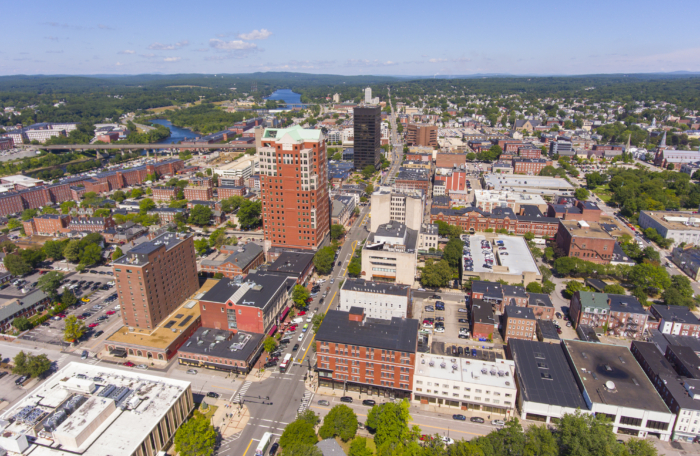Imagine you own a small entertainment venue in New Hampshire. What’s the value of an aisle seat in Row 37 on a Wednesday night in April?
Let’s say you printed the date, the time and a price of $100 on the ticket. Would that make the ticket worth $100? How about $200?
No idea, right?
You don’t have enough information to answer that question. You first have to know: 1.) Who’s playing that night, and 2.) How much are people willing to pay to sit in that seat in that venue at that time for that artist?
The number of people interested in renting that seat for two hours on a Wednesday night would vary along with the popularity of the artist. That number would be lower for a Dead Kennedy’s show than for a Dua Lipa show. (Yes, we know who Dua Lipa is. Kind of.)
Everybody understands that the value of sitting in that particular seat for any given two-hour period is not fixed. It depends on who is on the stage, when, where, for how long, etc. In other words, the value depends entirely on demand. It doesn’t matter what price you print on the ticket if that price doesn’t reflect the actual demand for that seat at that time.
So why do so many lawmakers (and consumers) assume that ticket prices set by venue operators reflect actual market value?
Venues have a lot of information that helps them set ticket prices. But ticket prices are not the same as ticket values. And extensive research into ticket prices has shown that venues and artists routinely underprice tickets relative to their market value for many reasons, including the desire to encourage sellouts (which maximizes concessions revenue) and avoid annoying fans.
“To maximize profits a promoter wants a sell-out as this maximizes complementary revenues and introduce the ‘crowd effect,’ meaning that consumers who believe a concert will be a sell-out are more attracted to the event and demand for tickets will intensify,” Hofstra University music industry professor Terrance Tompkins wrote in the International Journal of Music Business Research in 2019.
Industry professionals confirm what researchers have found.
“Average secondary ticket prices remain close to double that of a primary ticket, continuing to show the extent to which concerts and other live events remain priced below market value,” Music Business World, an industry publication, quoted Joe Berchtold, Live Nation’s President and Chief Financial Officer, as saying in a recent earnings call.
That huge gap between the retail price of event tickets and their market value drives the growth in the secondary market. People and policymakers like to hate on “scalpers.” But there wouldn’t be much of a secondary market if retail prices better reflected market value.
Concert ticket prices have risen dramatically in recent decades, reflecting a rise in demand and a rise in disposable income among the concert-going public. But generally speaking, retail prices often remain below market value, particularly for the most popular shows.
Senate Bill 328 would try to address this gap between price and value by imposing a price cap on the secondary market. Deceptively presented as a bill to ban deceptive resale practices, its last section forbids the resell of event tickets above face value.
That’s a price cap, and price controls are bad. Banning the resale of tickets for more than face value won’t change the actual market value of tickets for popular events. It will create shortages in legitimate secondary ticket markets and stimulate a separate black market for event tickets.
The Federal Trade Commission looked into ticket reselling in 2019 and organized a presentation by University of Chicago economist Eric Budish, who concluded, as so many other researchers have, that this market was driven by low retail ticket prices.
“The structural economic issue is artists/teams sometimes want to ‘underprice’ their tickets relative to what the market will bear,” Budish concluded. “This creates an incentive for rent-seeking behavior.” (That means it creates an incentive for people to buy tickets at their obviously low prices and make a profit by selling them at the market price.)
The FTC suggested that only three ticket-selling options exist:
1. Set a market-clearing price in the primary market.
2. Set a below-market price in the primary market. Much of the “real” allocation will happen in the secondary market.
3. Set a below-market price in the primary market + ban resale.
Option 2 describes the current market, which is obviously not ideal.
Option 3 describes the market as imagined in SB 328. This is also not ideal, as it would not solve the underlying problem but would expand the unregulated black market for tickets. It also likely would do little to curtail high markups in the secondary market, as law enforcement agencies rarely waste valuable officer time pursuing ticket resellers, which resellers know.
The best option is Option 1: setting a market-clearing price in the primary market. There’s research to show that this has highly positive effects.
Budish, the Chicago economist who presented to the FTC in 2019, later worked with Bank of America economist Aditya Bhave to study Ticketmaster’s short-lived experiment in auctioning a portion of tickets for concerts in the early 2000s. In a study published last year, they compared set prices and auction prices in the primary market to the prices for comparable tickets to the same shows in the secondary market.
Not surprisingly, they found that auctioning tickets instead of selling them for a set, below-market price all but eliminated the gap between retail and secondary market prices. And instead of scalpers collecting the difference between the set price and the market price, the artists did.
When fans paid the market price directly to the venue, rather than to a reseller, “artist revenues roughly doubled,” they found.
The auctions allowed fans to find the market-clearing price before resellers could, which “eliminated or at least substantially reduced potential resale profits for speculators.”
Unfortunately, Ticketmaster discontinued its auctions. Fans, unaccustomed to paying market prices at the retail level, didn’t like it. And so the secondary market continued to grow, and resellers, rather than artists, enjoyed the benefits of selling tickets for their true market value.
Auctions would be the most efficient way to find the true market value of an event ticket, but venues could get close to that value in other ways. They could raise prices for the most valuable seats at the most popular shows, charge significantly higher prices when tickets first go on sale to discourage mass reseller purchases, or delay sales until closer to the show date.
Venues also could choose to ban resales and require purchasers to show a photo ID at the door. But this doesn’t go over well with fans. It’s much easier to demand that lawmakers prevent resellers from making a profit.
Lawmakers certainly can pass laws making it illegal to sell tickets at market prices. But they can’t ban the laws of economics. People will find ways to sell tickets at market value. It’s better that venues do this in the primary market. If they choose not to do this, ticket purchasers will–even if legislators tell them not to. Moving market-priced tickets from the legal market to the black market isn’t good for anyone and would be the worst of all options.










